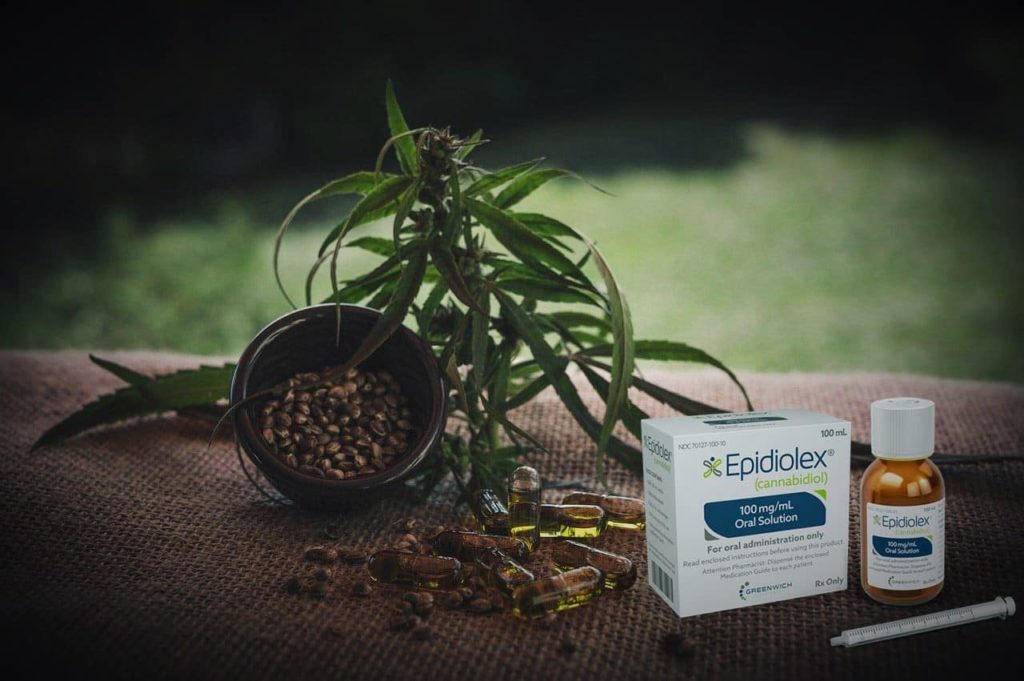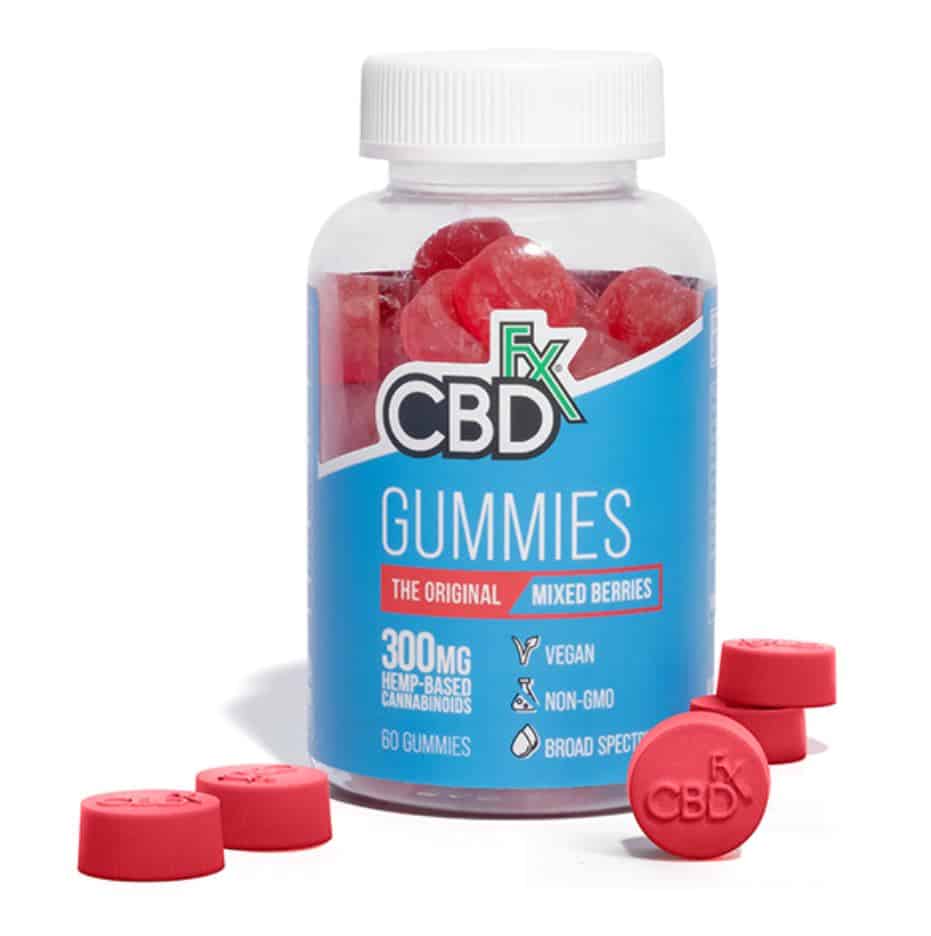CBD Oil for Epilepsy and Seizures: The Science Behind Epidiolex

The only FDA approved use of CBD is for reducing the frequency and intensity of epileptic seizures. The drug Epidiolex is available as a treatment for two forms of epileptic syndromes, and the myriad scientific research behind it shows that the use of CBD oil for epilepsy is safe and effective. Read on to learn more.
Epilepsy is a debilitating neurological disorder characterized by seizures or episodes of unusual behavior, movements, sensations, and, sometimes, loss of awareness. It commonly arises in infancy or early childhood and sometimes creates developmental delay.
The root causes of epilepsy can rarely be ascertained. In only about 30% of the cases, they can be attributed to factors such as: lack of oxygen during birth, head injuries, brain tumors, genetic abnormalities, cerebral infections such as meningitis or encephalitis, stroke, or abnormal levels of chemicals in the body.
The Scope of the Disorder
According to CDC statistics, active epilepsy is prevalent in about 1.2% of the US population, while the WHO reports that around 50 million people suffer from epilepsy worldwide. The UK Epilepsy Society has estimated that one in every twenty people experience a one-off epileptic seizure at some point in their life, although this doesn’t mean that they have an epileptic syndrome. In fact, in epileptic patients, as well as in otherwise healthy people, seizures can be triggered by a variety of events.
Conventional Epilepsy Treatments
Epilepsy is incurable, but with proper treatment and lifestyle changes, the seizures can be managed and even completely suppressed. The WHO puts the proportion of epileptic patients who could live seizure-free with adequate treatment at 70%; however, as around 80% of those suffering from epilepsy reside in low- and middle-income countries, the actual figure is drastically lower.
The common ways to manage epilepsy include:
- Anti-epileptic drugs (AEDs)
- Surgery to remove the part of the brain causing the seizures
- Implanting a small electrical device inside the body which can help control seizures
- A special diet (ketogenic diet) which can help reduce seizure frequency
- Avoiding seizure triggers
While many epileptics can significantly benefit from available treatment options, approximately one-third of epilepsy patients experience treatment-resistant seizures.
Can CBD Oil Help with Epilepsy?
CBD oil comes from the Cannabis sativa plant. This is the same plant commonly grown for its psychoactive ingredient THC. However, CBD oil is produced from hemp, legal varieties of Cannabis sativa which have had THC bred out of them. These strains only have trace amounts of THC (less than 0.3%), so products such as CBD oil for epilepsy do not produce a psychoactive effect.
The health benefits of CBD are numerous – and one of the most well-researched ones is its ability to reduce seizures. In fact, the only clinical FDA approval for the use of CBD was granted for its proven anti-epileptic properties.
The strawberry-flavored, sesame oil–based oral solution Epidiolex (a 100 mg/mL CBD concentrate) has been shown to significantly reduce frequency of seizures in three randomized, double-blind, placebo-controlled clinical trials involving over 500 patients with either Lennox-Gastaut syndrome or Dravet syndrome, two rare and severe forms of epilepsy. It’s possible that CBD may be effective with seizures stemming from other kinds of epilepsy and other medical disorders, too. However, this is subject to further research.
Epidiolex (Concentrated CBD Oil for Epilepsy) Clinical Trials
Here is some information on the two “catastrophic” (treatment-resistant and with profound effects on their physical and mental development, quality of life and life expectancy) epilepsy types Epidiolex has been approved for:
Dravet syndrome – this form of epilepsy has a very early onset. In one-year old infants, it starts manifesting with a long seizure accompanied by a fever. It’s caused by a genetic mutation and is a lifelong condition. The seizures are frequent and both focal and generalized. The condition responds poorly to medication. Ketogenic diet was found to help manage the seizures, and, in rare cases, to completely attenuate them.
Lennox-Gastaut syndrome – this type of epilepsy typically arises in early childhood or infancy; it’s commonly detected between the ages of three and five. It is either hereditary or a result of a cerebral malformation, with developmental delay often manifesting along with the seizures, although early antiepileptic treatment can reduce it. The seizures themselves can be tonic, atonic, clonic, or atypical (absence of seizures but presence of uncharacteristic actions and movements). Ketogenic diet was found to help manage the seizures, significantly but less so than with Dravet syndrome patients. In rare cases, it completely attenuates them. Other treatment options include vagus nerve stimulation implants, which send mild electrical pulses to the brain to prevent seizures, and epilepsy surgery.
The Epidiolex Clinical Trials
The three clinical trials that led to Epidiolex being approved by the FDA were large-scale, double-blind, and placebo-controlled.
The 2017 study included 120 children and young adults with Dravet syndrome, who were having drug-resistant seizures. Along with standard antiepileptic treatment, the participants were randomly assigned to receive either a 20 mg/kg of CBD oral solution daily (given in two separate doses) or a placebo solution for a 14-week trial period.
On average, the seizure frequency decreased from nearly 13 per month to about 6 seizures per month with CBD, while the decrease with placebo was insignificant. About 5% of the patients experienced complete seizure reduction. Side effects were more common in the cannabidiol group, and they included diarrhea, vomiting, fatigue, fever, decreased appetite, and drowsiness. Abnormal liver function was also more commonly reported for the cannabidiol group.
The 2018 study included 171 patients with Lennox-Gastaut syndrome, who were randomly assigned to receive either a 20 mg/kg of CBD oral solution daily (given in two separate doses) or a placebo solution for a 14-week trial period.
The reduction in monthly drop seizure frequency from baseline was reported to be on average 43.9% in the cannabidiol group and 21.8% in the placebo group. Similar side effects as in the Dravet study were reported in 86% of the cannabidiol test participants, but also in 69% of the placebo participants, making the correlation between the drug and the side effects less strong.
The other 2018 study was conducted across thirty clinical centers, and it included 250 participants ages 2 to 55, who had been experiencing two or more drop seizures per week. Participants were randomly assigned to receive either a lower or higher cannabidiol dose (both based on body weight) or a placebo in two daily doses for 14 weeks.
The average reduction in drop-seizure frequency during the treatment was nearly 42% in the higher-dose cannabidiol group, about 37% in the lower-dose cannabidiol group, and 17% in the placebo group. Side effects similar to those reported in the Dravet syndrome study occurred more frequently in the higher-dose group.
CBD for Other Forms of Epilepsy
Available research on the effectiveness of CBD for epilepsy in forms other than Dravet and Lennox-Gastaut syndromes is not abundant.
A 2018 study involved 132 patients, both adults and children, suffering from various types of epilepsy. They received CBD in doses of 5 mg/kg/day up to 50 mg/kg/day (20-30 mg/kg/day was the average dosage range). The total study duration was 48 weeks.
The average seizure frequency in the study group dropped from 144 seizures to 52 seizures per two-week period. Participants also experienced less-severe seizures than before they had begun taking the CBD medication. These improvements were achieved at 12 weeks and were sustained over the 48-week duration of treatment. Most of the patients (77%) were still taking Epidiolex after 24 months, at which point the effectiveness of the drug was reportedly still holding up.
One recent large-scale long-term study has found that approximately one-third of epileptic patients who were successfully being treated with CBD develop tolerance after 7.3 months of use on average. Their study included patients with various forms of epilepsy, not just the two forms approved for treatment by the FDA. CBD use is known to lead to tolerance, but it’s still an open question whether dosages need to be increased indefinitely or if there is a plateau; meanwhile, other longitudinal studies failed to find (or analyze/report) this effect in epileptic patients. More research is needed on this topic.
The Cost of Health
Unfortunately, as of now, priced at about $32,500 for a year’s supply, Epidiolex is a prohibitively expensive treatment option for many. The price is expected to fall as more CBD products eventually get approved and saturate the pharmaceutical industry. Until then, although federally unregulated, much cheaper, but well-received and positively reviewed CBD oil remains an available alternative possible to purchase from numerous online retailers.

With full disclosure, the use of CBD oil for epilepsy seizure management in children has been found to cause side effects more frequently than in adults. However, these adverse effects were also commonly reported in groups of participants who were given a placebo.
It remains an open question if CBD, especially its long-term use, may be more toxic for children than it is for adults. Still, the cannabinoid underwent thorough testing and was approved as a safe compound for epilepsy treatment in patients over two years old by the FDA.
Acknowledging the possibility of experiencing side effects, the seizure suppression that CBD oil can bring does appear to outweigh them in terms of health and livelihood. You are, however, strongly advised to discuss the introduction of CBD products into your child’s routine with the primary caregiver.
Have you tried using CBD oil for epilepsy seizure management on yourself or your child? What are your experiences?
If you haven’t, are you considering it? What are your concerns?
Please share them with us in the comments below.
